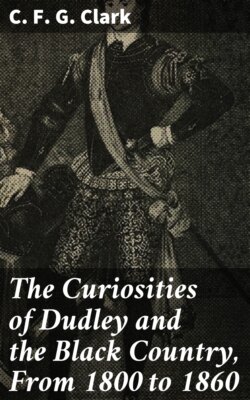Читать книгу The Curiosities of Dudley and the Black Country, From 1800 to 1860 - C. F. G. Clark - Страница 9
На сайте Литреса книга снята с продажи.
REFORM AGITATION.
ОглавлениеTable of Contents
During this period the agitation for Reform was monthly assuming larger proportions, and the mighty voice of the then unrepresented masses was knocking at the doors of the Houses of Parliaments with miles of petitions from all parts of the country, for “a Reform in the Representation of the People.” Dudley joined its neighbours at Birmingham and Wolverhampton in the cry for Reform (neither of which important centres of industry had any share then in parliamentary representation, save through their county members.) The serious aspect of passing events and political agitation, which was evoking most persistent demands for “Reform,” stimulated the great and eloquent leaders of that movement to introduce a “Reform Bill” into the House of Commons by Lord John Russell, on the 1st of March, 1831, “For leave to bring in a Bill to amend the representation of the people in England and Wales.”
This sweeping measure was to disfranchise 60 “Rotten Pocket Boroughs” of most diminutive numbers of voters holding their rights under all sorts of curious conditions. These Boroughs then sent 120 members to Parliament; besides 47 Boroughs were to lose one member each, making 168 old members to be ejected from the House; this annihilation of “vested rights” was to be supplied by 34 new members to be selected by manufacturing towns, most of which had no Borough representation at all, and 55 additional members were to be added to the counties. Such a startling measure as this necessarily created a wild and frantic torrent of indignation amongst all classes concerned in maintaining the unjust and vicious system of mis-representation and jobbery, whilst those large towns (of which Dudley was one) were jubilant at the prospects of a new feature in those local privileges, “a Borough representation.” This marvellous debate extended over a period of thirteen long nights in the House of Commons, and was carried by a majority of votes.
It is almost needless to say that Lord John Russell’s speech, as published in the political life of the Earl, has become history, and was one of the most telling and searching exhibitions of close, clear, and comprehensive reasonings ever uttered in the British Parliament.
